|
Genres, Themes, Actors, and Directors:
- Charles Boyer Films
- David Niven Films
- Deborah Kerr Films
- George Raft Films
- Jacqueline Bisset Films
- James Bond Films
- Jean-Paul Belmondo Films
- John Huston Films
- Orson Welles Films
- Peter Sellers Films
- Satires and Spoofs
- Spies
- Ursula Andress Films
- William Holden Films
- Woody Allen Films
Response to Peary’s Review:
Peary writes that “it’s hard to believe that in 1967 we actually waited in anticipation for this so-called James Bond spoof” — helmed by no less than six directors — which was a “disappointment then” and remains “a curio today,” though “just as hard to sit through”. He argues that it’s “disjointed and stylistically erratic”, and that despite “featuring an all-star cast… , enormous sets, and some state-of-the-art special effects, it is a testament to wastefulness in the commercial bigger-is-better cinema.” DVD Savant refers to this as “perhaps the most out-of-control production of the Mod Sixties”, costing $11 million despite having no script to start with, and signing “enough big stars to float eight or nine pictures” — none of whom “knew exactly what they were getting into.”
Peary recommends watching perhaps simply those “scenes featuring Peter Sellers and Woody Allen”, but I’ll admit to enjoying Kerr’s hilarious performance in the otherwise completely unrelated first half-hour:
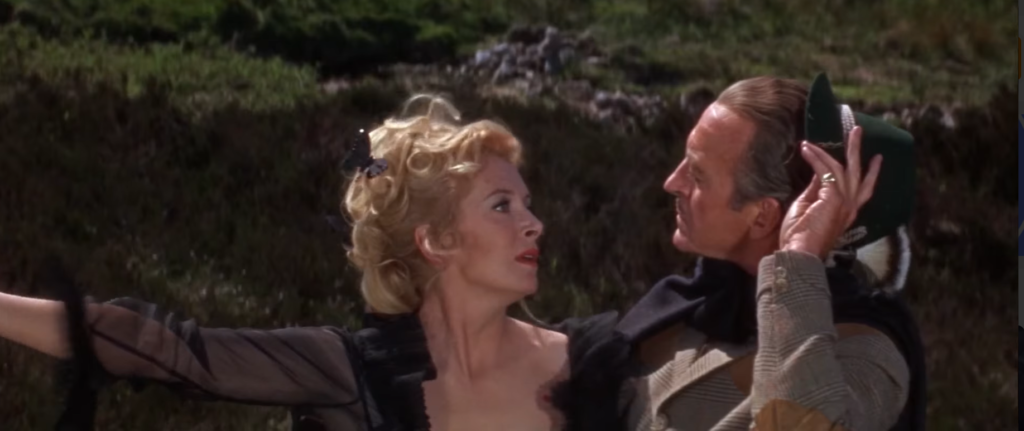
and Joanna Pettet (as Bond’s long-lost daughter, “Mata Bond”) visiting a wildly expressionist spy school:
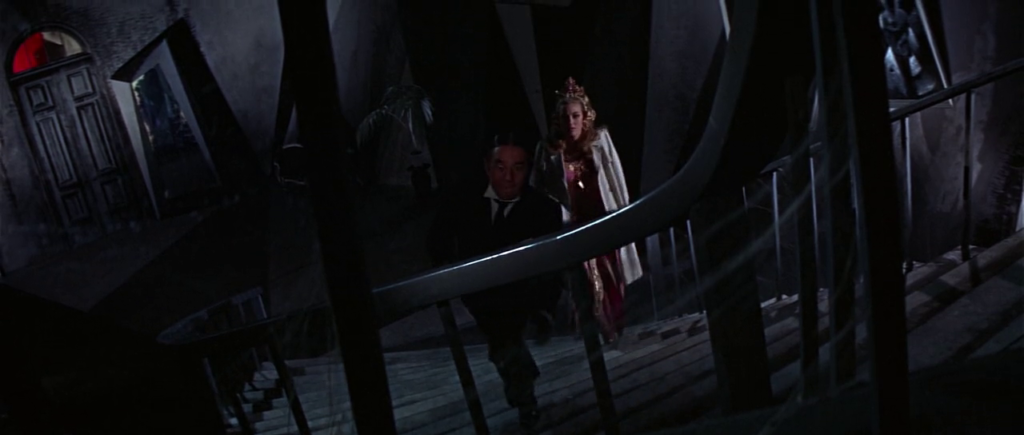
— both of which would be eliminated if you focused just on Sellers and Allen. Watching for seemingly endless cameos by big-name stars (including “George Raft as Himself”) provides some passing amusement as well. Meanwhile, Burt Bacharach’s score is an instantly hummable ear-bug — be forewarned.
Redeeming Qualities and Moments:
- Creative cinematography
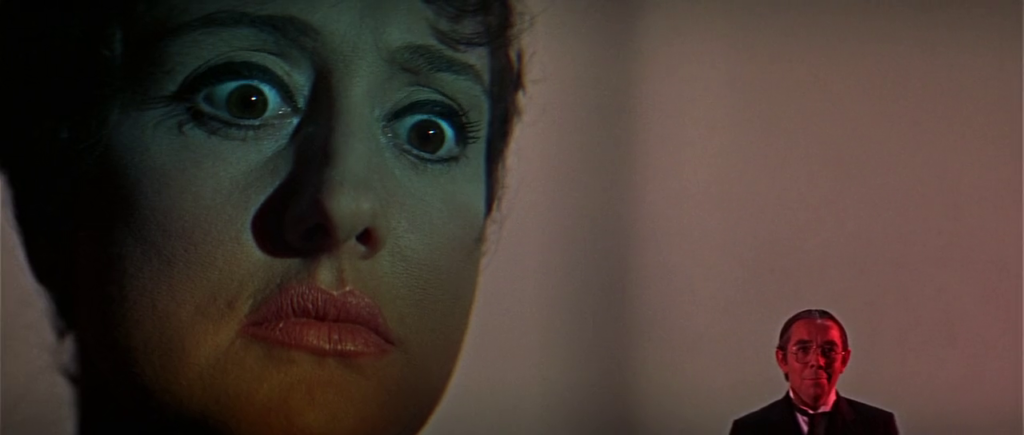
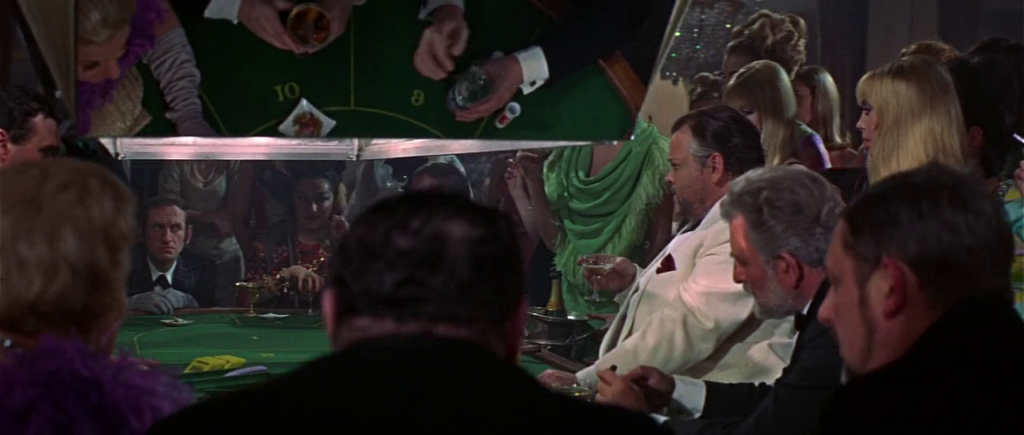
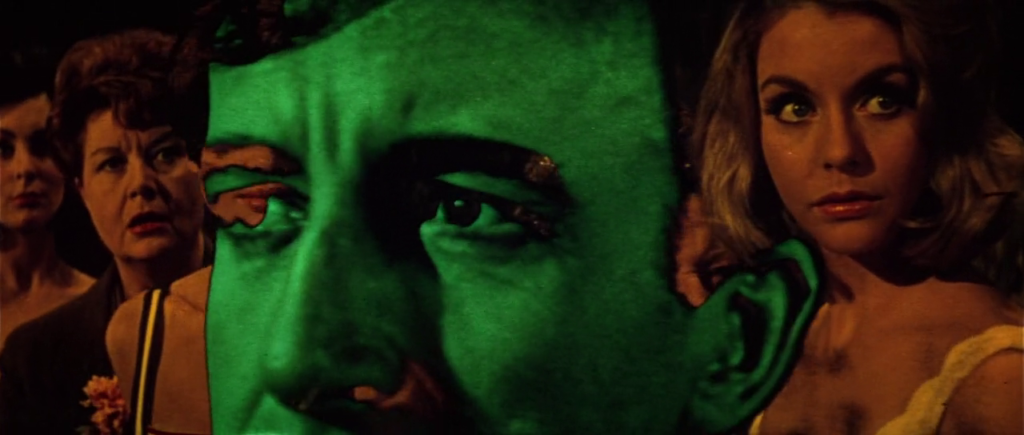
- Far-out sets
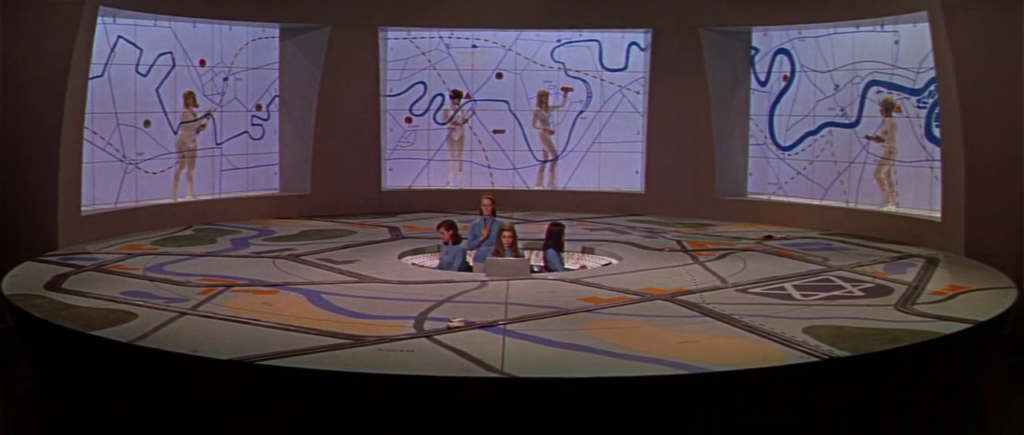
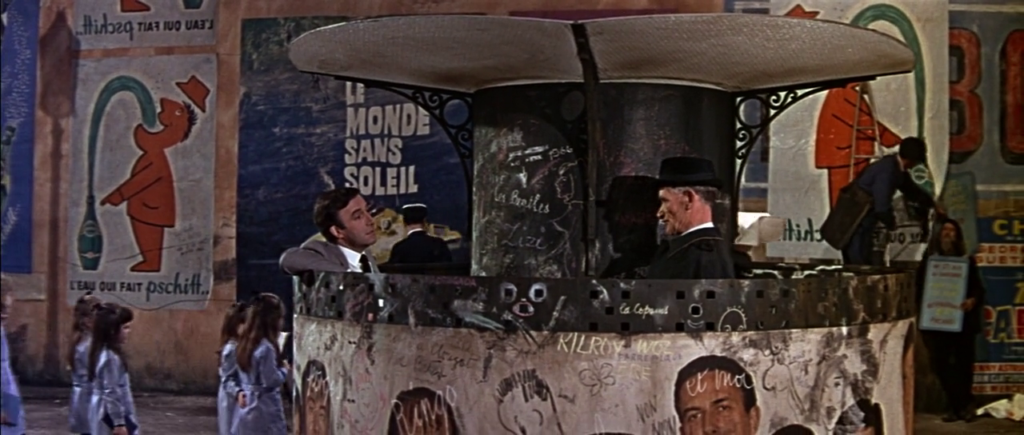
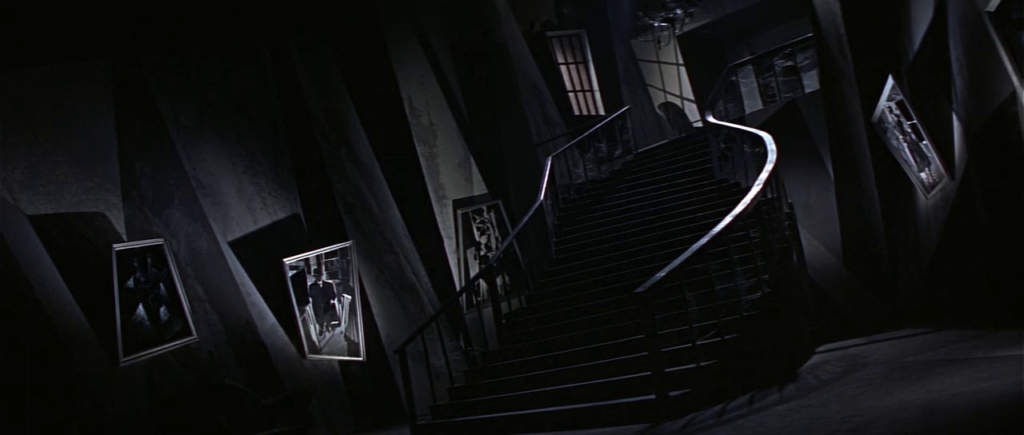
- Burt Bacharach’s score
Must See?
No, though it’s certainly worth a one-time look for its historical curiosity value.
Links:
|
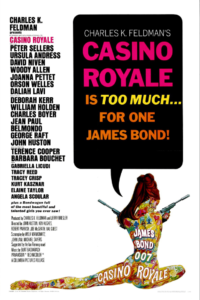








3 thoughts on “Casino Royale (1967)”
⭐️⭐️⭐️ out if ⭐️⭐️⭐️⭐️⭐️
Overblown, out of control, uneven but great fun. Plenty of laughs and it looks fab. Love the Burt Bacharach score with an assist from Tijuana Brass and Dusty Springfield.
Along with Thunderball and You Only Live Twice, the big inspiration for the Austin Powers franchise.
Not must see.
A must-see, as a genuine and memorable cult item. As per my post in ‘Revival House of Camp & Cult’ (fb):
“I am Sir James Bond.”
“Daddy!”
‘Casino Royale’: In order to properly appreciate this notorious spoof, you may have to ignore its reputation as a terrible film – which it isn’t. I hadn’t seen it since its initial release – and I was surprised by how much I enjoyed it. Among the many criticisms is that it makes no sense – that isn’t true. One of the film’s 6 directors, Val Guest (in with main director John Huston, Ken Hughes, Joseph McGrath, Robert Parrish and Richard Talmadge) was given the added duty of making sure that the edited film had a through-line, which it has. Mainly because of Peter Sellers’ bad behavior on set*, which ultimately led to his disappearance from the production, his role (only) slightly gets lost near the film’s end. But that’s actually of little consequence. ‘CR’ doesn’t play as ‘chaotic’, it plays as ‘freewheeling’ – which is appropriate for the film’s tone.
Of course, its tone changes as the film goes on. As director of the film’s first 40 minutes, Huston starts things off realistically but with a light, droll touch. Because his contribution is solid, we’re more willing to accept what follows – which (with a phenomenal production design) becomes loonier along the way but never incompetent. (None of the directors are actually bad: you can check Wikipedia for who did what. One of my favorite sequences comes when the plot goes to Berlin and Joanna Pettet – as Mata Bond, introduced in a splendid dance sequence – enters a spy school brilliantly designed as the setting for ‘The Cabinet of Dr. Caligari’.)
‘CR’ has a rep for being such a disaster that one might pre-suppose it’s unwatchable. But I started watching it late last night and was swept up in it. It has a terrific (and very game) cast and they all seem to be having a wonderful time. The anchor is David Niven – who may be the only actor who can be funny *and* elegant in a fight scene. Niven is an unflappable constant no matter who is in the scene with him. (It can’t just be me who finds it hilarious when Ursula Andress answers DN with what seems like Terry Southern dialogue: “But enough of this polite conversation; what is the purpose of your visit?”) And his best partner is Deborah Kerr, who has never been this funny.
Burt Bacharach provided more than just music – his wildly inventive score is a character in itself, supplying ‘CR’ with a much-needed thread of textured abandon. The film leads to an unleashed goofiness that pre-dates the conclusion of ‘Blazing Saddles’. Far from being a bomb (it also made more at the box office then ‘Dr. No’ and ‘From Russia with Love’ combined), ‘CR’ has eventually lucked out as a logistic nightmare that now plays like a little bit of heaven.
*Sellers and Orson Welles had a mutual hatred similar to that of Raquel Welch and Mae West on the set of ‘Myra Breckinridge’.